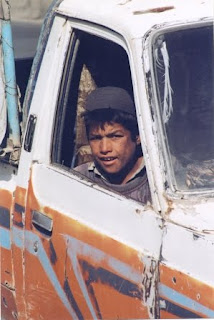The Face of Afghanistan (7): Broken Promises and Wrong Choices
Afghanistan is still waiting for us to deliver on our promises. In a famous UN session decades ago, the rich world pledged to spend 0.7% of their national income for direct development aid. We pledged to spend money for the target country and in that country. Business investments and loans were supposed not to count as they are simply money that will give investors a yield over time.
Only a handful of donors have achieved that. Despite what the public opinion may have been led to believe, experts estimate that the US has been contributing only 0.15% – a gap of, in 2005 dollars, over 50 billion dollars per year. The US accounts for half of the missing development budget - Germany, the UK, Italy, France together for 20%, and Japan for another 20%.
Western societies should ask themselves if their claims of working for international peace and justice are not just hypocrisy. At any rate, it looks like our most prominent contribution is a military one – one which has amply demonstrated that, while sometimes necessary, it is absolutely insufficient for nation-building. The US alone pumps over 400 billion US dollars per year into military expenses, trying to build a military might that would defend it from the most dangerous consequences of underdevelopment. Not only does this means that the US government is spending a very low amount of direct aid as a percentage of its economy's size, but it also means that it is spending thirty times more in military expenses than in direct development aid - by far the highest ratio of any developed country. Others do not fare much better, especially if you consider that they also "ride" the investment of the US. In Afghanistan well over 90% of the money that the US-led Western Coalition has spent has gone into the military campaign, not the reconstruction effort.
The best way to consolidate the peace process is to build more hope into people, hope that today’s peace will bring tomorrow’s welfare. If Afghanistan is to be convinced that it should now play with new rules, we must show that new rules do bring some prosperity into everyone's home. We are wasting precious time, and by not having yet brought tangible material prosperity to ordinary Afghans outside Kabul, we are failing to convince them that democracy, markets, and peace are good for them.
There is a time when more of our money is spent more effectively in rebuilding a society rather than just imposing a truce through military control. That time is now.
[continue reading The Face of Afghanistan]
[see the video]
[see the photo gallery]




Comments
aped